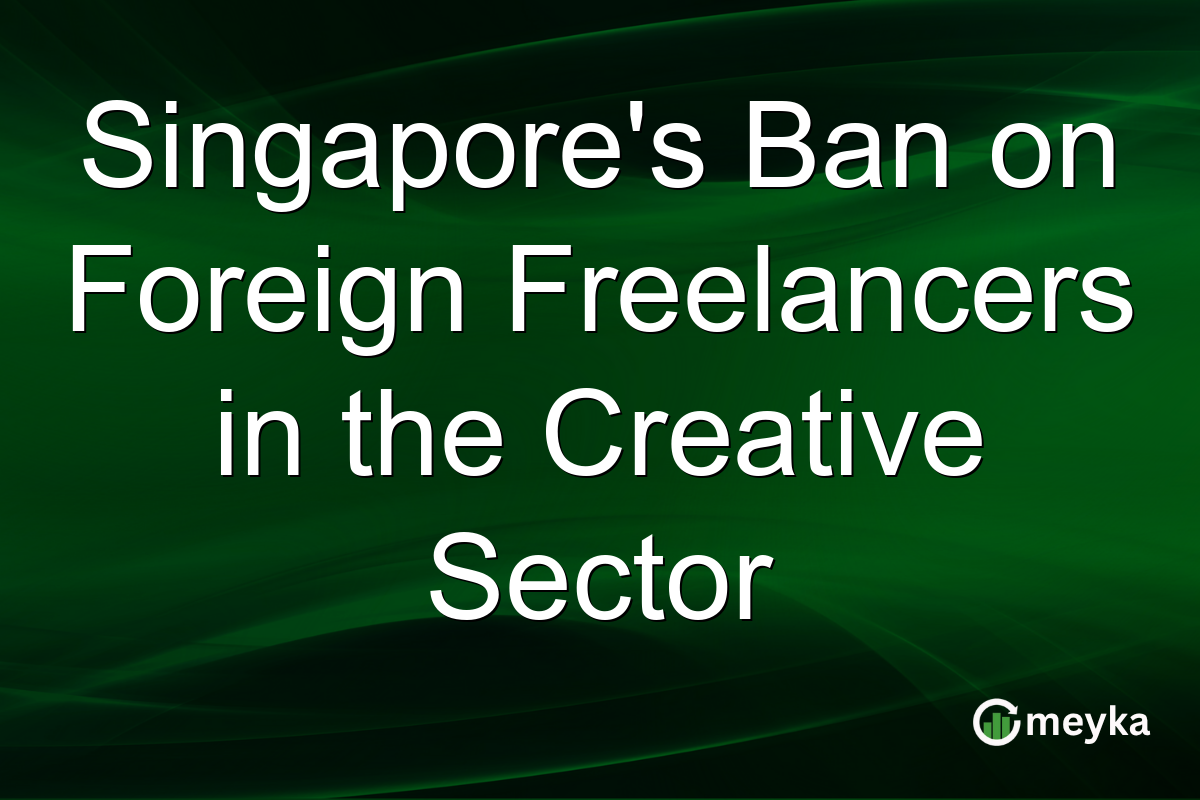Singapore’s Ban on Foreign Freelancers in the Creative Sector
Singapore’s Ministry of Manpower (MOM) has taken a firm stance by enforcing a ban on foreign freelancers in the creative sector. This move, which aims to ensure compliance with the Employment of Foreign Manpower Act, reflects the city’s tightening regulations in the employment landscape. As Singapore aims to protect local job opportunities and address compliance issues, this directive has stirred discussions within the industry.
Overview of the Ban
The Ministry of Manpower’s new directive prohibits companies in Singapore from hiring foreign freelancers for creative services. This decision stems from repeated violations of the Employment of Foreign Manpower Act. The Act is designed to regulate the employment and management of foreign manpower in Singapore. By enforcing this measure, Singapore aims to address the non-compliance with labor laws, ensuring that only those with proper work permits engage in employment.More details about this directive highlight the focus on creative industries like media, design, and advertising. These sectors have traditionally relied on freelance talent. By restricting foreign participants, local professionals may find more opportunities, aligning with Singapore’s efforts to bolster its domestic economy.
Implications for the Creative Sector
This ban has significant implications for Singapore’s creative sector. Companies that previously depended on international freelancers for diverse talents and skills must now pivot. They face the challenge of sourcing locally, which could affect project timelines and creative output.Reports suggest that some businesses are concerned about the availability of qualified local professionals. Nevertheless, this measure could stimulate growth in local talent pools. By nurturing home-grown skills, Singapore aims to enhance its competitive edge in the creative market. Companies may need to invest in training programs and partnerships with educational institutions to bridge the talent gap.
Potential Benefits for the Local Economy
From an economic perspective, banning foreign freelancers in the creative sector could have several benefits. The regulation aims to create more jobs for Singaporean citizens and permanent residents. This aligns with the government’s broader strategy to support local employment and economic growth.Studies show that increasing local employment can lead to greater consumer spending within the economy. By providing more opportunities to local freelancers, we might see a boost in innovation and creativity within the sector. Furthermore, this move reinforces the country’s commitment to a fair employment landscape, emphasizing the value of legal and ethical workforce practices.
Challenges and Criticisms
While there are clear intentions behind the ban, it has faced criticism from businesses and freelancers alike. Critics argue the lack of available local talent in specific niche areas could slow down projects. Additionally, companies may face higher costs as they adjust to the new requirements and potentially higher salary expectations from local hires. Some stakeholders worry that restricting international collaboration could stifle creativity and innovation. Despite this, the MOM remains firm in its decision. They believe the long-term benefits of nurturing a skilled local workforce outweigh the short-term disruptions. This policy underscores Singapore’s commitment to creating a balanced employment ecosystem that benefits both companies and citizens.
Final Thoughts
Singapore’s decision to ban foreign freelancers in the creative sector is significant, reflecting a focus on promoting local employment. Although it presents challenges to businesses, it also offers opportunities for local talent development. As Singapore navigates these changes, platforms like Meyka can offer valuable insights into market trends and economic impacts, aiding businesses in adapting to the new landscape.
FAQs
The ban aims to ensure compliance with the Employment of Foreign Manpower Act and promote local employment opportunities in the creative sector, addressing violations and enhancing domestic talent growth.
The ban primarily impacts creative industries such as media, design, and advertising that often rely on freelance talent to fulfill project needs. It encourages companies to hire locally instead.
By increasing job opportunities for Singaporeans, the ban could boost local spending, nurture home-grown skills, and encourage economic growth within the creative industry.
Disclaimer:
This is for information only, not financial advice. Always do your research.






